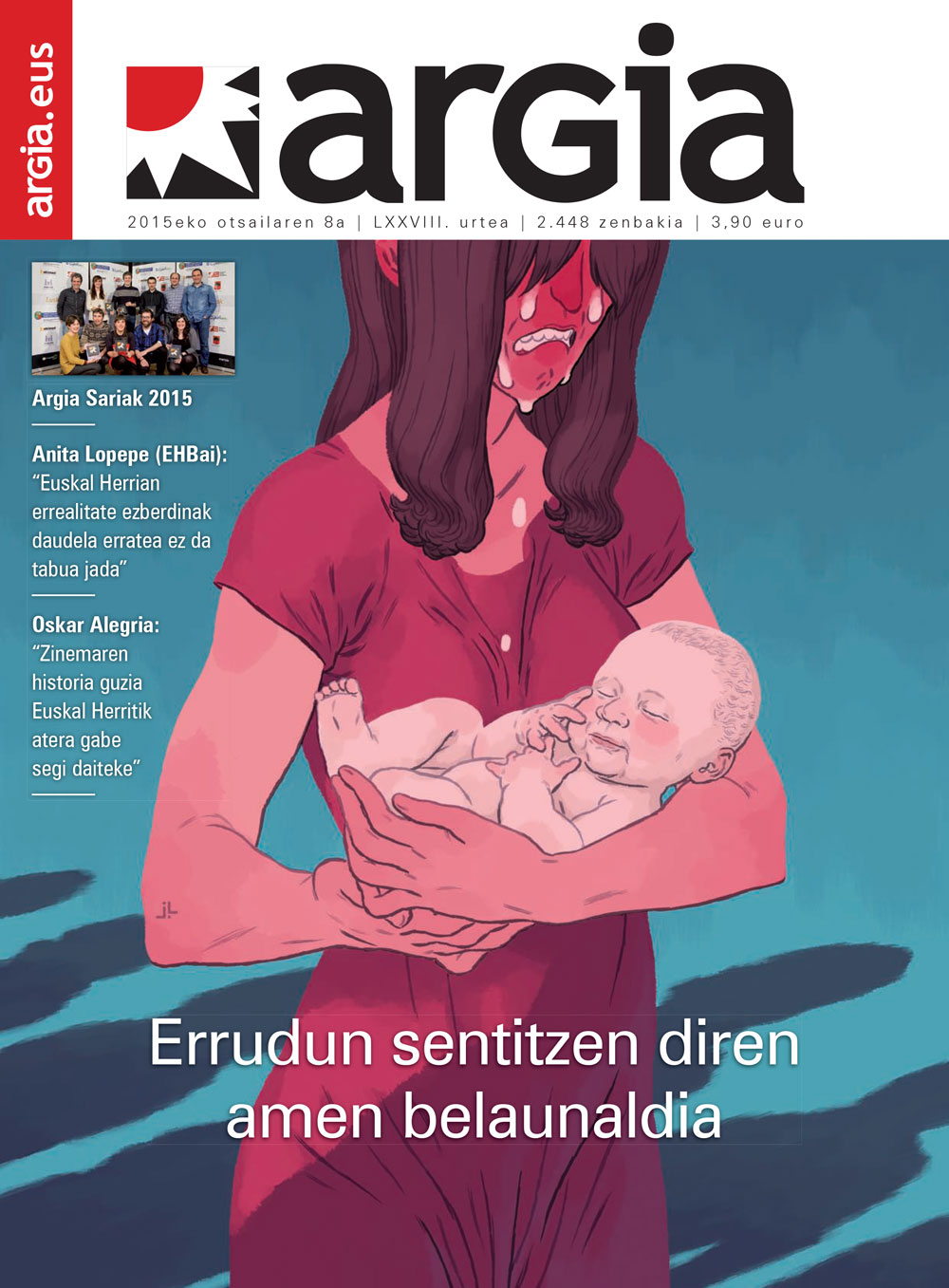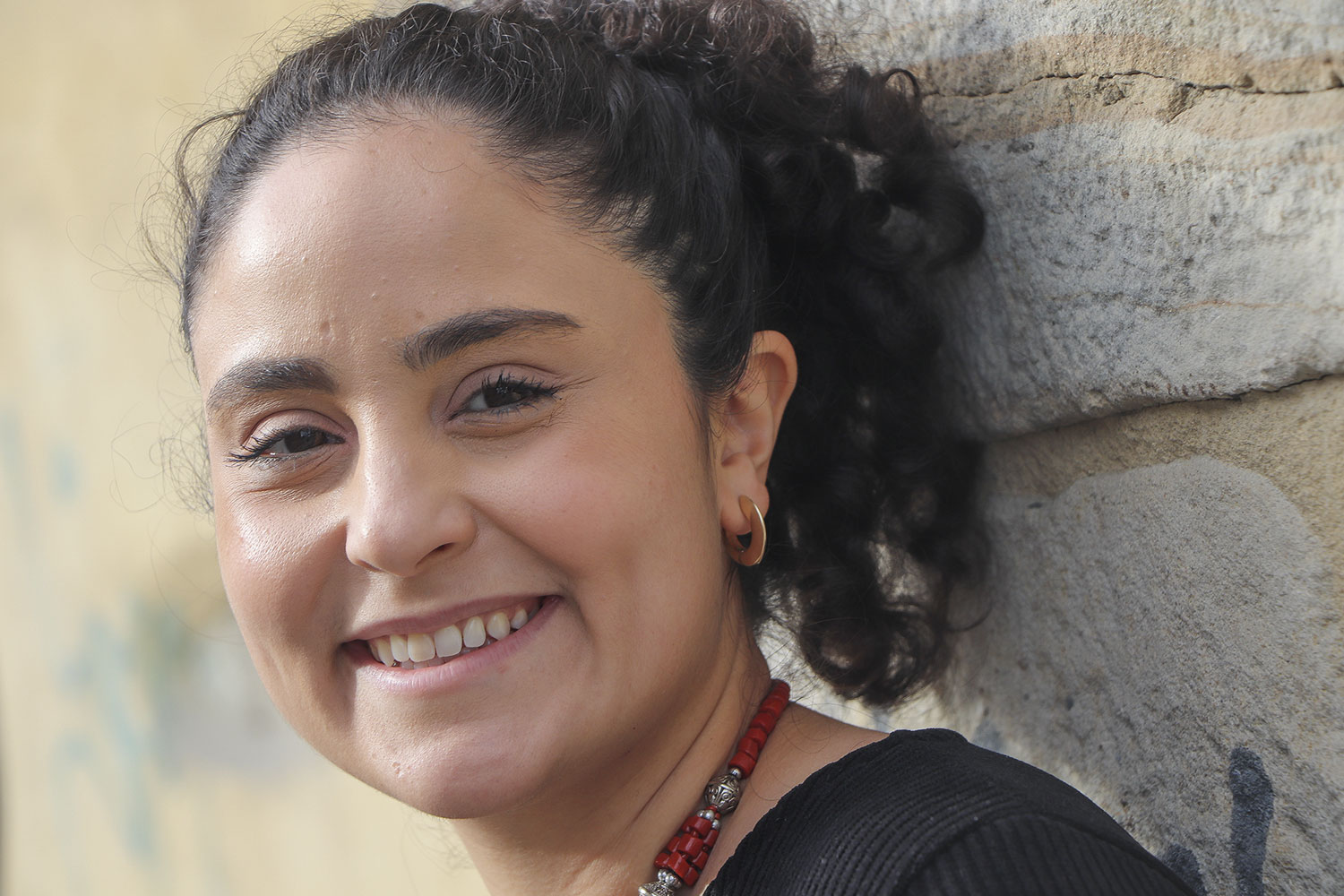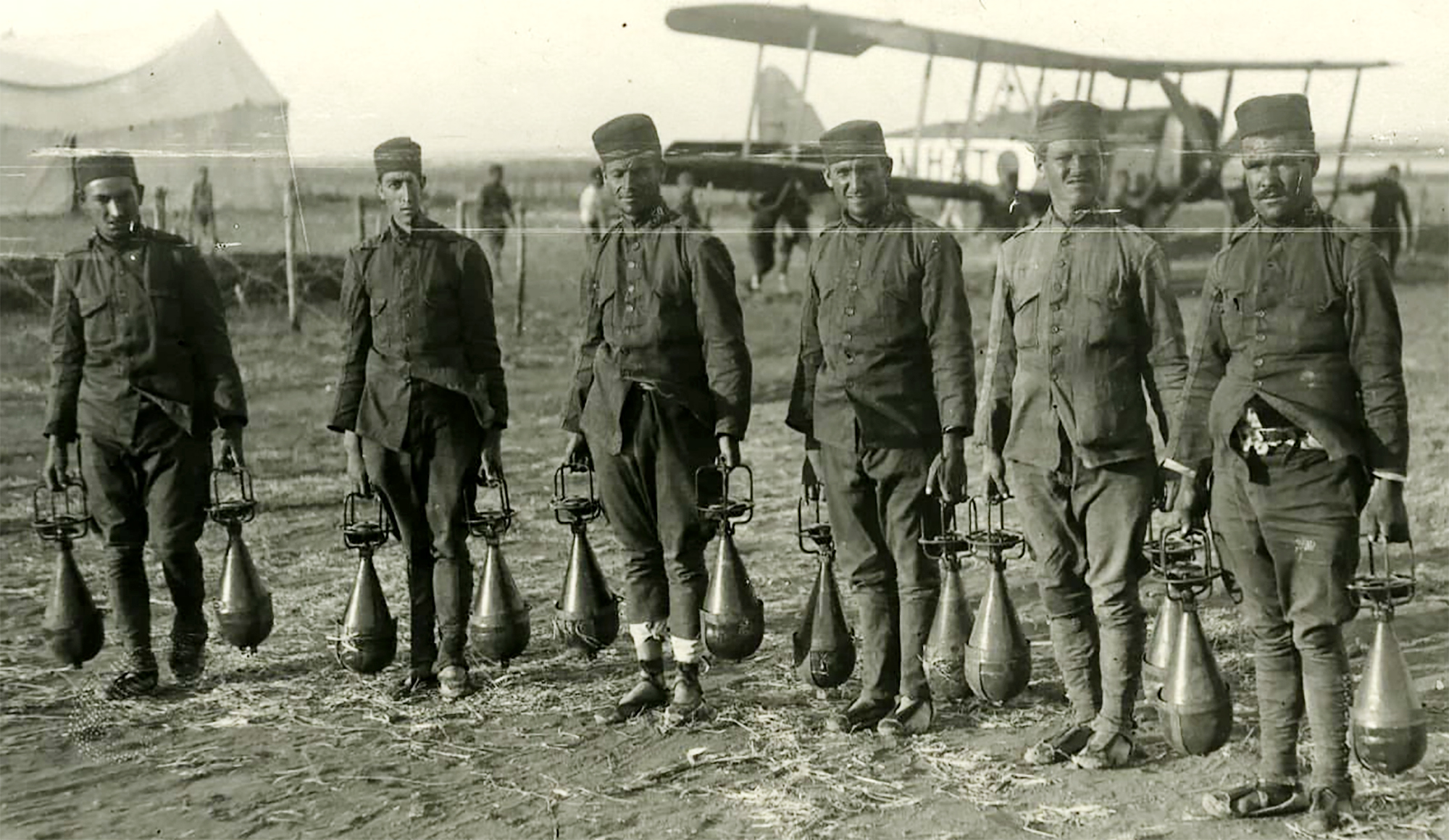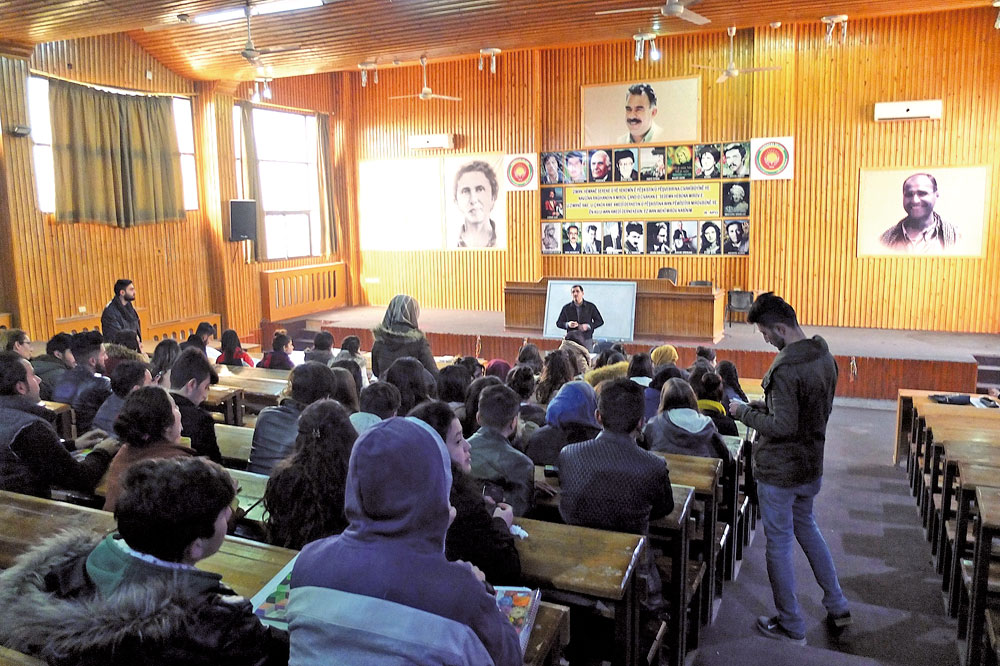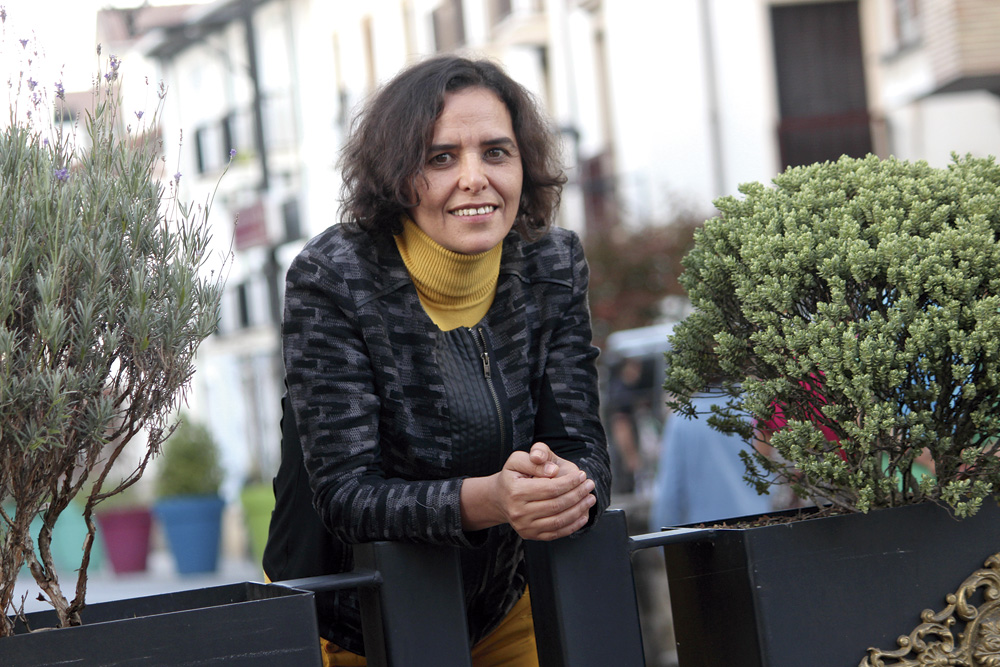Writing "other" history of Libya
- The Libyan Amazighs continue to raise a banned language for more than four decades. However, the past is heavy and the situation in the country is very complicated. It's not easy.
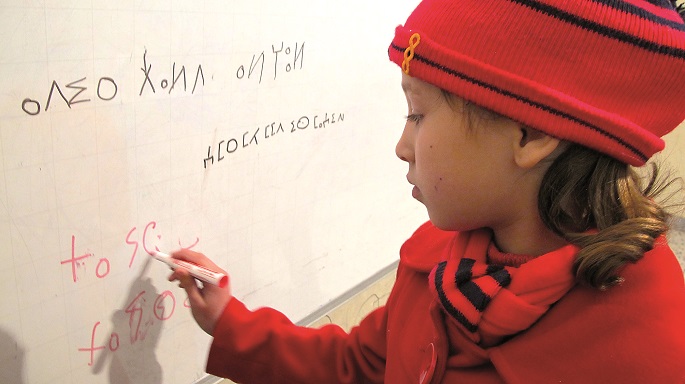
It's cold in the classroom. Many children wear wool hats and work on the alphabet that few could identify in the world. It is difficult to imagine that we are in a region of the southern Mediterranean. In the mountains of Libya, however, we have the typical picture of winter.
“We offer three hours a week from Amazigia, between the 1st and 4th grades,” explains Argia Said Azabi, director of the Mezzo school. Mezzo is a district in the village of Jadu, in the Nafusa Mountain Range, northeast of Libya.
Although they are better known for their names, the Amazon is a native town in North Africa. They extend from the Moroccan coast to Egypt and have the same language as the Tuaregs speak within the Sahara. Many say it is a miracle that this country is still alive to this day; since the Arabs arrived on these lands in the 6th century, the Amazigh have had to face a violent assimilation process. In Libya, it is estimated that they represent 10 per cent of the country ' s total population.
“The first classes in Amazigea were taught in 2011, in these mountains, when the war was still going on (Sunrise in the mountains of free men, Argia, 2.290. CNN. ),” Azabi said, that the children have gone out into the courtyard. “Adfel, adfel!” the children shouted: “Snow!”
In the words of the director, the material they use and the team of teachers have been achieved thanks to a "large number of volunteers". But it hasn't been easy. In 1973, on the occasion of the “cultural revolution” of Muammar Gaddafi, all other things that did not conform to his Green Paper were banned and, on many occasions, destroyed. Gaddafi said that the Amazigh were of Arab origin and that their language was the pure dialect. The president banned all linguistic and cultural expressions of this people.
“We get out of the ashes and we are in full effort to recover lost time,” says Madghis Buzakhar. Buzakhar, a political prisoner, is one of the authors of school books. Despite living in Tripoli, he is a 33-year-old from the village of Jeenburg, son of Nafusa. Undoubtedly, the mountain range is the main area of the Amazigh in Libya, but not the only one. The other is the people of Zwara, on the border with Tunisia, on the coast of the country. There, most cultural activities are carried out at radio headquarters. Today 15 teachers have attended to learn about the new material from courses 4 and 5.
“Even though most of us have the Amazon mother tongue, we didn’t start writing until 2011. The Tifinag, our alphabet, was forbidden under the command of Gaddafi,” explains Noha Alasi, who participated in the seminar.
“Thanks to the Internet I learned how to write at that time,” added the 24-year-old girl. “All of us here get it.”
Ftwa Halib, sitting next to him, agrees. The chief responsible for the teacher evaluation explained to Argia the details of the challenge: “We have 60 teachers for 26 schools in Zwara, but it’s not enough,” the 33-year-old volunteer regrets. “On the one hand, the lack of training of volunteers creates a vacuum; on the other, we have no long-term plans.”
Art professor Najib Sasi is also an Education Counselor for the teaching of the Amazon in the Ministry of Education. Logistical issues are not, in their view, the only obstacle.
“For centuries we have had to face an Arabistically based mentality and we cannot forget the complicated situation of the country,” Sasi said from his office in Zwara.
The situation in Libya is really complicated. There are two governments: one Tripoli and the other in the city of Tobruk, on the border with Egypt. Each of them has an army of eleven militias facing across the country. We're basically talking about civil war.
“The experience of the Basques”
“How on earth can we move forward in this situation?” Hafed Fatis laments. Zwaratí, 48, was present in Euskal Herria in 2013, thanks to the invitation of the association Garabide. In the course of three months, Amazigha had the opportunity to meet, together with other members of minority cultures, the steps taken in the normalization of the Basque country. “We were fourteen in the group: Kurds, Aimarcas, Ketxus… It was a great opportunity for us to know the experience of the Basques”, said the entrepreneur. Fatis is working on the implementation of what has been learned in the Basque Country in its region of Libya. He says it is “difficult”: “Many here want immediate results, but I learned from the Basques that the total normalization of a minority language is a long-term project.”
Mezzo's 3rd graders are too young to remember the terrible decades of bans. Moreover, some of them did not live in Libya before 2011. For example, Talia, who is nine, came from Sudan after the end of the war. Today, however, he talks about Amazigi as well as his classmates. The reason is obvious. “My house is here, Jadun. I am also Libyan,” says the girl, before finishing the last Amazon school of the week.
Euskal Herrian jasotako ordenagailuei bizitza berria emango diete: TxikiLinux sistema eragilea erabiliz, Amazigh herriko haurrek erabiliko dituzte, horretarako hamabi gela informatiko sortuz. Oinarrizko hezkuntzarako sarbiderik ez duten eskualdean egingo dute proiektua.
Hizkuntza tipologiaz ez baina amazigerak eta kurduerak bizi duten prozesu simetrikoaz jardun du Karlos Zurutuza kazetariak: “Prozesu polit eta bitxi baten lekuko izan naiz. Egun batetik bestera, eta literala da hori, bi komunitateok euren hizkuntzei eusteko hartu duten... [+]
Gutxieneko eskubide demokratikoak eskatzen ari dira Marokoko Rif eskualdeko bizilagunak, joan den azarotik. Uztailaren 20ko “milioien martxa” amaitzean irakurri dute protestetako buruzagietako bat den Naser Zafzafik espetxean idatzitako mezua.
Rif eskualdeko protestek ez dute etenik eta tentsioa gora doa. Milaka polizia eta militar atera ditu Marokok kalera, baina ez dute lortu oraingoz herritarren manifestazioak geldiaraztea.







